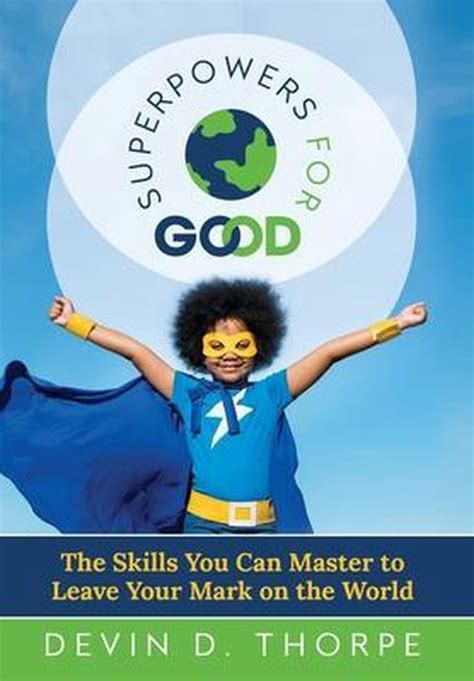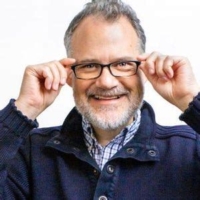
ΩThis is the last of three posts. I plan to use them to introduce one organization and two individuals that even my regular readers may not know about.
During the course of the pandemic, I have “met” hundreds of people, two of whom have had a profound impact on me. Last week, I wrote about Kelly Corrigan. This week I turn to Devin Thorpe whom I will actually to meet in a few weeks’ time.
Our is an unusual friendship that came to pass under unusual circumstances even by my standards.
A Chance Encounter
In November 2021, I shifted my blog and newsletter to Substack. There was nothing strategic or noble about my decision. My previous provider wanted to charge me more because my readership had grown, and Substack was free.
I had no idea what to expect. Substack itself was pretty new and it was making a splash by attracting some big name authors in part by offering them an opportunity to monetize their work, something I’m not particularly interested in.

The same day I issued my first post on the Connecting the Dots community I got my first subscriber. Some guy named Devin Thorpe whose name meant absolutely nothing to me. And since my writing wasn’t going well that day, I decided to procrastinate and look him up.
It was the best wasting-of-time moment of my entire life.
And I’m a master time waster.
Since then, we’ve spent a lot of online time together, including a dinner party that suddenly ended when the hosts lost power in a thunderstorm. During that time, he has become not only a valued friend but someone who will be part of AfP’s domestic initiatives going forward, which I’ll get to at the end of this post and feature in the next one.
Superpowers for Good
The first thing I learned about Devin is that he has spent more than a decade documenting the work of people who have what he calls a superpower for good. With the exception of a brief period in 2020 when he had the Quixotic idea that he could get elected to Congress as a liberal Democrat from Utah, Devin has averaged two podcasts a week which he has archived on one of his many websites, Superpowers4good. The most recent ones are available on the streaming television service, e360tv. In 2021, he published more than sixty of the most insightful of them in a book of the same name. The first interview in the book is with Katherine Hayhoe which he conducted long before she became a rock start in the climate change world because of her ability to reach out to Evangelical Christians and others from her home base in Lubbock TX.
He somehow is able to record and post at least two of these podcasts as week which he presents in roughly half hour episodes which makes their weekly feed perfect for my Friday hour long walk around the neighborhood. For as long as I have been listening, Devin begins each episode by asking the guest what their superpower is and then he takes it from there.
If nothing else, I’m amazed that he keeps finding at least two people a week to interview. If nothing else, that tells me that there are plenty of superpowered humans out there.
I do keep sending him names.
And, he has demonstrated that he has some standards. He hasn’t asked me to be on the show.
SuperCrowd
In the three years I’ve known him, Devin has put more and more of his attention into what he calls SuperCrowd (yes, there is a super theme to his work).
He is one of many investors and analysts who are taking advantage of a feature of the 2012 Jobs Act that I had never heard of before. Until its passage, only accredited investors worth at least two million dollars could invest in startups. This new law authorized the creation of online platforms through which individuals could invest in companies with as little as $100.
\
This drew Devin’s attention given his history as an investment banker with increasingly progressive goals. First, he started following those platforms. Then, he realized that many of these were the kinds of companies he would like to support and, as his wont, created the Impact Cherub Club of which I’m a charter member. Each month, about ten of us gather to consider two or three companies that we could invest in. One or more club member does some basic research on each of them, and we decide whether or not we should invest. Not everyone invests in all of the ones we agree to—I’m among the members who has invested the least. Nonetheless, we at least find out about cool new companies doing good work that benefits entire communities. This month, I’ll be examining a company that provides solar panels that could be put on the roof of urban row houses.

Last but by no means least, Devin has turned into an evangelist for this kind of investing by creating the SuperCrowd which hosts events to spread the word. The third online SuperCrowd conference will be held in April at which I will be speaking.. Devin is also experimenting with face-to-face events, including one in Baltimore at the end of March which I plan to attend.
Partnering with AfP and Beyond
Then last week, Devin sent me an email. Couldn’t we find ways for his world to work more systematically with the peacebuilding and other communities I typically work with. Little did he know that AfP is about to launch a “Peacebuilding Starts at Home” campaign in which, among other things, we will be building alliances with networks like his that could, in turn, create locally led initiatives that could change both cultural norms and public policies on a wide variety of issues.
We expect to launch that initiative this week (including the partnership with Devin) in the next week or two. It will be the subject of my next blog post.
The views and opinions expressed in this article are those of the author and do not necessarily reflect the official policy or position of the Alliance for Peacebuilding or its members.
